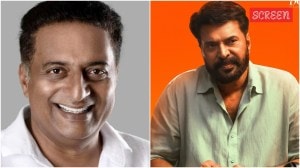California’s leading lady joins the 110 Club
Marion Higgins is very good at remembering. She remembers writing her first book 10 years ago. She remembers moving into Seal Beach’s L...

Marion Higgins is very good at remembering. She remembers writing her first book 10 years ago. She remembers moving into Seal Beach’s Leisure World in 1989. She remembers celebrating the end of the World War — both II and I. She remembers hearing the Titanic had just sunk, and she remembers hating sun bonnets. That would have been in the ’90s — the 1890s. Higgins turned 112 on June 26.
She belongs to an exclusive but growing population of super-old folks whose longevity is so much more than a family bragging rite. Her life has spanned the terms of 21 of the 43 presidents in US history. Her frail body, sharp-as-a-tack mind and amazing longevity are being closely studied by a little-known Los Angeles research center to discover secrets to living long and well.
According to the Gerontology Research Group at UCLA, the average life expectancy for Americans born today is 77.6 years (80.1 for women and 74.8 for men). The 2000 Census found some 50,000 Americans who claimed to have reached 100. The research group, accepted as a global authority on the super-elderly by Guinness World Records, among others, becomes interested only after someone reaches 110 — a super-centenarian — which only about 500 Americans will. Then, the group’s network of gerontology detectives such as Robert Young seek proof and insights.
In the eyes of these researchers, Marion Higgins is a living textbook on aging whose lifestyle, habits, health, mental acuity and genes — along with, ultimately, her autopsied body — could offer valuable clues in the search for the secrets of longevity.
‘‘We know so much more than before,’’ says Dr. L. Stephen Coles, a physician and co-founder of the Gerontology Research Group. ‘‘But we’re still only beginning to decipher the biological hieroglyphics of the human genome and how the body ages.’’
For Coles, keeping legitimate lists offers important scientific benefits: opportunities to continue decoding human DNA and the aging process through long-lived examples. ‘‘People think if we can eliminate disease after disease, we can live forever,’’ he says. ‘‘Not! Our bodies are biological machines with certain warranty periods built in through the DNA of our parents.’’
Indeed, the group’s research shows genetics can trump lifestyle. Higgins’ siblings lived into their 80s, her mother to 92, and her father to 101. Other indicators are less clear. In the longevity race it’s best to be female; 90 percent of super-centenarians are women. Coles also sees moderate living as critical. Or as Higgins puts it, ‘‘I never had enough money to lead a riotous life.’’
LAT-WP



- 01
- 02
- 03
- 04
- 05




























